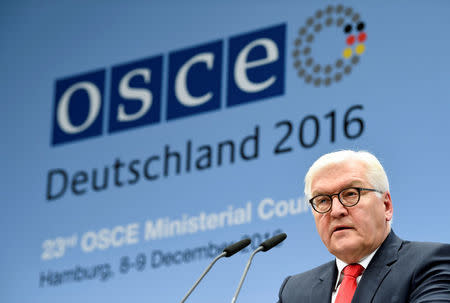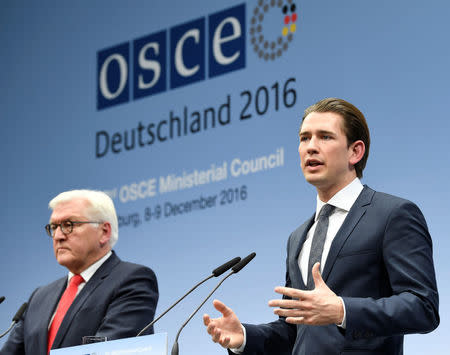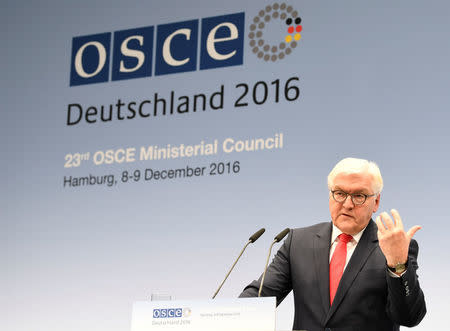United States, Russia, trade barbs at European security meeting
By Andrea Shalal HAMBURG (Reuters) - The Organisation for Security and Cooperation in Europe (OSCE) remained divided over the conflict in eastern Ukraine at the end of a two-day meeting in Hamburg, with the United States accusing Russia of blocking a resolution. German Foreign Minister Frank-Walter Steinmeier, OSCE chairman for the past year, said that even though no formal resolution on eastern Ukraine had been signed, ministers agreed on the need for the parties involved in the war to meet their commitments to end the violence. But the U.S. ambassador to the OSCE, Daniel Baer, blasted Russia for what he called its ongoing "obstructionism". He said many of the few resolutions ultimately adopted were "weakened considerably" by Russia, while others, notably on human rights and the Ukraine crisis, were blocked outright. "It's really important to recognise that on most things in the OSCE today there is still consensus among 55 or 56 of the 57 participating states," Baer told reporters. "It sends a political signal that Russia is isolated." Russia annexed the Black Sea peninsula of Crimea from Kiev in March 2014, and went on to back a rebellion in east Ukraine. The conflict has claimed nearly 10,000 lives and efforts at implementing a peace agreement, brokered by Germany and France, have stalled for nearly two years. Russian Foreign Minister Sergei Lavrov in turn accused Washington of stalling talks about evacuating remaining rebel-held parts of the Syrian city of Aleppo, which is on the verge of falling to Moscow-backed Syrian government forces. The OSCE, a 57-member human rights and security watchdog, skipped issuing a joint communique but ministers did reach agreement on several resolutions, including one condemning Islamic State and other militant groups. Austrian Foreign Minister Sebastian Kurz, who becomes its chairman in January, said the fight against Islamist militancy would be a centrepiece of his year at the helm. Kurz said it was critical to combat the ideology of the jihadist movement inside Europe as well as fighting it in the Middle East. "We have over 10,000 people in the OSCE countries that have gone to to Iraq and Syria to support Islamic State terrorism," Kurz told reporters. "And when they get back into our societies, they pose a massive security risk for us all." (Reporting by Andrea Shalal,; Editing by Angus MacSwan)

 Yahoo News
Yahoo News 


